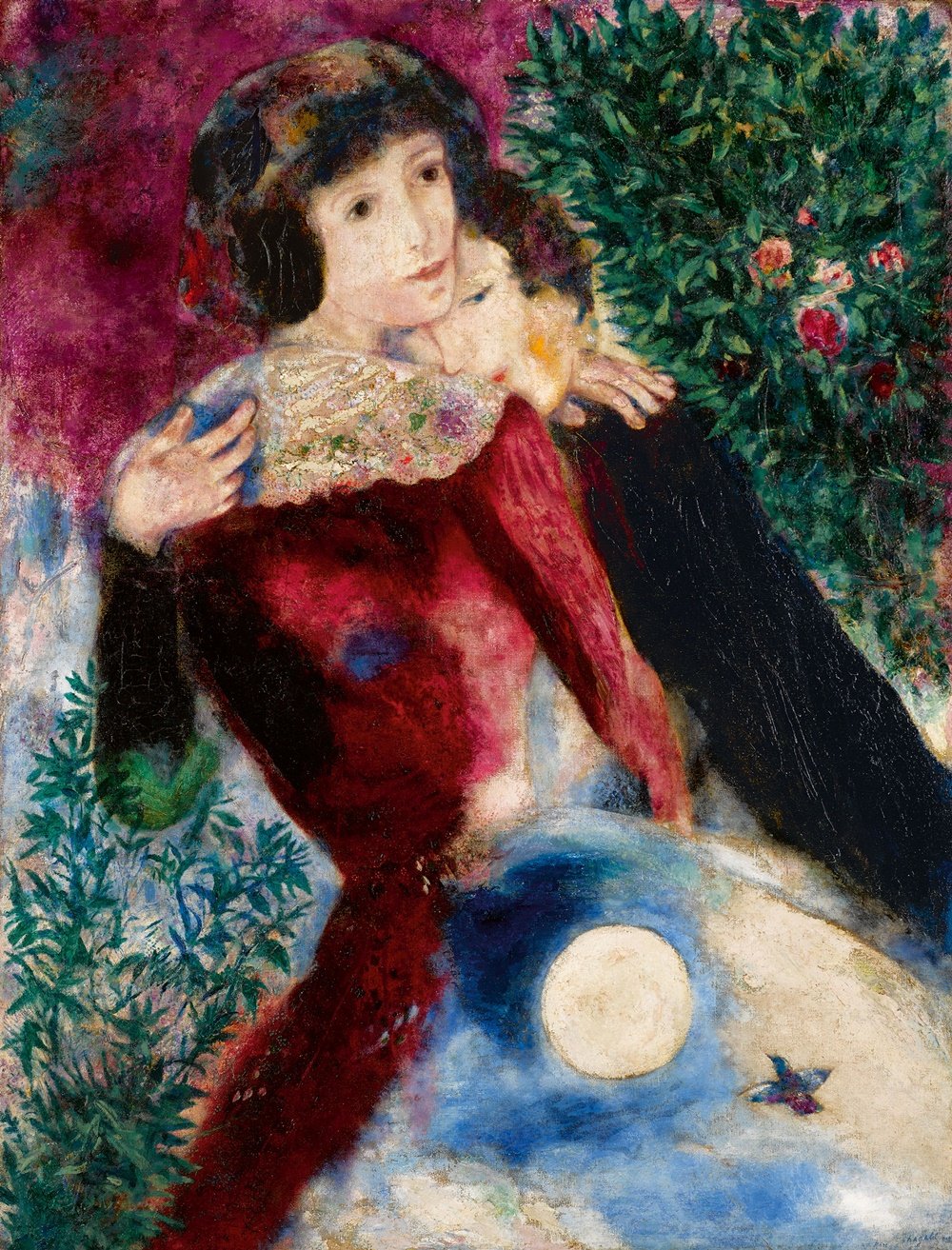
Sotheby’s has just announced it will offer a major early work by Marc Chagall at its evening Impressionist auction next month.
Will the rare work, which has never been on the auction block before, break the nearly 30-year-old $14.85 million Chagall auction record?
That benchmark was achieved back in 1990 when frothy Japanese buying and demand helped push art prices to ultimately unsustainable levels. (That buying contingent immediately vanished when the art market crashed.) The activity for Chagall has an interesting parallel in the Van Gogh auction market, also the target of speculative late-’80s Japanese buying. The $82.5 million auction record for Portrait of Dr. Gachet set in 1990—albeit far more expensive than the Chagall—has also never been broken to date.
The 1928 Chagall painting, Les Amoureux, depicting the artist’s lover and muse Bella Rosenfeld, was acquired shortly after it was painted, through Paris gallery Bernheim Jeune & Cie. It has been in the same (unidentified) family ever since. The painting is estimated at $12 million to $18 million, and if it reaches that territory, it will almost definitely set a new record.
“It’s very rare that we see major Chagall works from the teens, 20s, and 30s,” says Simon Shaw, co-head of Sotheby’s worldwide Impressionist and modern art department. The artist was nearly 100 years old when he died in 1985 and “was very prolific, so we see a lot of material on the market. But most of that is from the later years.”
Indeed, the artnet Price Database lists over 34,000 auction results for Chagall’s work. Of these, roughly 3,100—about 9 percent—failed to find buyers, and the most inexpensive work, Le piège, a 1962 color lithograph, sold at German auction house Hauswedell & Nolte in June 2000 for DM 7,600 ($3,700).
The $14.85 million record set at Sotheby’s in 1990 was for Anniversaire (1923), an oil on canvas that soared above the $6 million to $8 million estimate. The only price to come near that was achieved much more recently when $14.6 million was paid for Les trois cierges (1939) at Christie’s New York this past May. The third-highest price was paid a decade ago, in 2007, when Le grand cirque (1956) sold for $13.8 million.
Shaw describes the marketplace for Chagall as “very broad and deep.” It’s also one, he points out, that experienced a big spike in the ’80s when Japanese buyers were chasing the work. “You get a big price spike up to 1990 and then, when the Japanese exit the marketplace in 1991, it’s sluggish,” he says. “Then it picks up again with the collapse of the Soviet Union and subsequent development of the Post-Russian economy starts to play a major role in the art market.”
From roughly 2003 to 2007, there was intense competition for works by Chagall, according to Shaw, “but the really good early pictures are few and far between.” Currently, he says, there is robust demand in the US, throughout Europe, and growing interest in Asia once again. Sotheby’s just brought Les Amoureux to Hong Kong and exhibited it there during the recent auction series where it was seen by thousands of viewers.
In addition to the work’s rarity and provenance, it was created during a special time in the artist’s life. “This is a moment in the 1920s when Chagall settled back in France for a second time after the Russian Revolution,” Shaw explains. “Not only was he very happy on a personal level, but this is really where he makes his career. He signs an exclusive gallery arrangement and has solo shows for the first time. He’s really successful for the first time in his career.”
Sotheby’s evening Impressionist sale will take place on November 14.